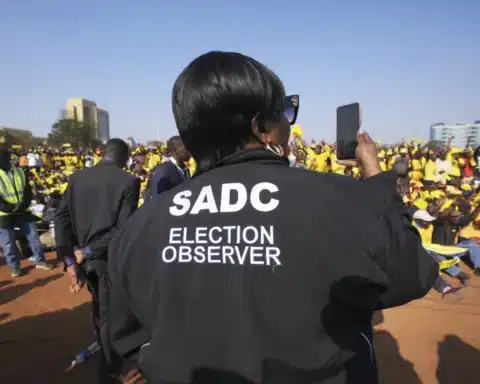MUTARE, Zimbabwe – Victims of triple murder suspect Jaison Muvevi may have to wait for many months, or even years, to see justice served, as Mozambican authorities have announced they will try him on gun charges.
Muvevi had been on the run since January 13, when he shot and killed three people in Wedza and critically wounded a fourth. On January 15, he allegedly fired shots at another man at Mutare Boys High School while searching for food.
He was arrested by members of the public after crossing into Mozambique at Machipanda on Monday morning, and was handed over to Mozambican police.
A team of Zimbabwean detectives had conferred with their counterparts in Mozambique, but they declined to release Muvevi, who was found with two guns at the time of his arrest.
A source at the National Prosecuting Authority (NPA) in Zimbabwe said they had hoped Mozambique would deport Muvevi as an illegal immigrant, but instead he will now face trial in Mozambique.
“By deciding to prosecute the suspect on gun charges, we face a real possibility that he will first go on trial and if convicted, serve a jail sentence in Mozambique. It could be many months or even years before we lay our hands on him,” said an NPA lawyer.
Zimbabwe is now expected to file an extradition request and wait for a response from Mozambique.
Muvevi, a retired police detective who had reportedly made a small fortune in mining, is facing a string of charges in Zimbabwe, including three counts of murder and two further charges of attempted murder.
It is not yet clear what motivated Muvevi’s alleged spree, which began with the shooting of a 62-year-old self-styled prophet.
The arrest was caught on video, showing Muvevi being pinned down by several men and attempting to tie his hands with shoelaces.
National police spokesman Assistant Commissioner Paul Nyathi said in a statement: “The ZRP acknowledges and appreciates the support given by members of the public in the pursuit of the suspect.”
The case highlights the cooperation and cordial relations between Mozambique and Zimbabwe in the area of security, but also the possible challenges in seeking justice for victims in such cross-border cases.








